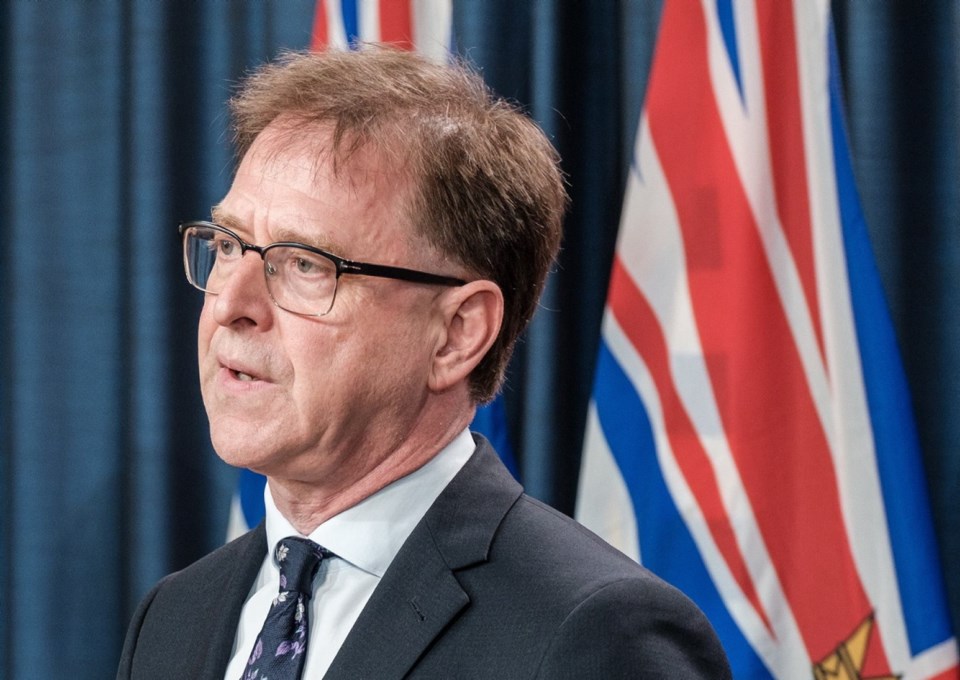It’s hard to square the NDP government’s backtracking on the idea of temporarily detaining young people in the midst of drug overdoses for their own good with B.C.’s record on involuntary confinement of other patients for similar mental-health reasons.
Thousands of people in mental-health distress get detained for treatment every year — including youths. But when the government tried to set up a new short-term option for young people in acute overdose situations — now widely considered a mental-health issue — there was concerted opposition.
Some front-line medical people strongly supported the idea. But there was enough political clout behind the objections that cabinet capitulated this week. The bill is considered suspended for more consultation. But it would be an uphill battle to resurrect the idea.
The phalanx of opposition included Indigenous leaders, some mental health advocates and, most notably, the representative for children and youth and the chief coroner. Not to mention the B.C. Green caucus. There were some valid criticisms to do with Indigenous concerns and lack of treatment facilities. But in some crisis situations the legislation could have been a valuable option.
It would have legislated numerous strict conditions under which youth in the midst of an acute overdose could be involuntarily detained for a week in hospital to stabilize. Most other provinces have such secure care provisions and the idea has pitched before in B.C., but never gained enough traction.
It was listed in Health Minister Adrian Dix’s name, but Minister for Mental Health and Addictions Judy D’Arcy introduced it. She said it would be a short-term measure to keep youth safe for a few days until they regain decision-making capacity.
Coincidentally, Dix last week outlined statistics for detaining people in mental-health crises.
In the most recent year available (2018), 15,711 people were involuntarily detained for mental-health reasons, Dix said.
They were detained because they suffered from mental disorders and/or required psychiatric treatment to prevent their deterioration.
And 12.3 per cent of them were youth, he said.
Dix said the diagnoses overall involved severe psychosis such as schizophrenia, suicidal ideation, and “psychosis with concurrent opioid addiction disorder.”
So by rough estimate, about 1,900 young people were detained for mental-health reasons in the most recent available count, and the reasons could include psychosis with concurrent opioid addiction.
The difference between the now-cancelled change and the status quo is a fine one. The shelved amendment would have allowed detaining young people for a few days just based on the overdose situation.
Whatever the concerns, it still would have been an expansion of care, compared with just restoring their vital signs and turning them back on to the street.
Green MLA Sonia Furstenau, who raised the issue with Dix, noted ombudsperson Jay Chalke reported last year that the detention rate has jumped 71 per cent in the last dozen years. He pegged the number of youth even higher than Dix did (2,566 in 2017).
Chalke cited the overall increase while flagging slipshod compliance with the legal requirements to commit mental-health patients involuntarily. Required documents were missing, steps were skipped and admissions were literally rubber-stamped. Barely a quarter of all admissions met the standards.
It was a warning about doing involuntary commitals properly. But it shouldn’t be a reason to give up on severe interventions to save young people’s lives.
The runaway mental-health crisis is a fact of life in every downtown — and in many parks. The rampant increase in overdose deaths is even more dramatic. And the recurring stories around B.C. of addicted teenagers snuffing their lives out — inadvertently or otherwise — just compound the horror.
It’s a shame that the massed opposition to this change wound up dwelling on specific objections at the expense of the bigger picture.
The mental-health crisis is out of control. All the problems flowing from it are getting worse, not better. Overall, nothing seems to be working.
The government would have had to admit those facts if it pushed ahead with the change.
Instead, it cited the busy parliamentary calendar and the need to talk it all over once again. Then it caved.



